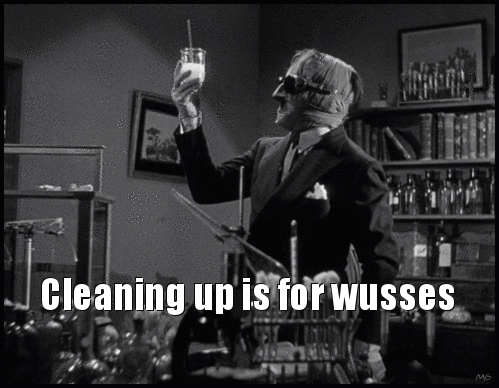Having a bad day at work? Did your printer die on you again? Or did you get your tie stuck in the shredder? Not all working days are like that though. Here are some times when people shone at the workplace, created Products quite unintentionally and made tons of money off it.
1. FedEx and the Vegas weekend
This parcel and delivery company owes its existence to the gambling strip at Vegas. Back in 1974, Fredrick W. Smith, the founder and CEO of the young company found himself in a bit of a pickle. His corporation had just $5000 against its name, and no money to fuel its planes the following Monday. At this point, Smith did something that doesn’t really feature in the MBA curriculum of most universities – he headed to the blackjack tables.
And Vegas delivered. He raised $32,000 that weekend, and managed to keep the company afloat. Today, the company is worth $35 billion, and his own estimated net worth is a cool 2 billion.
2. Alexander Fleming and the discovery of Penicillin
The year was 1928. Sir Alexander Fleming was experimenting with the influenza virus at the St. Mary’s Hospital in London. He’d been making little headway, and thus set off for a two week vacation. In typical mad scientist fashion, he neglected to neatly put away his used petri dishes.
When he returned, he discovered a messy mold growing all over his equipment. Instead of calling for pest control like a normal person, he set about studying it, and happened to discover penicillin. His discovery of this miracle drug changed the course of modern medicine and saved millions of lives.
3. David Choe and the Facebook paintings
David Choe was a California based painter and graffiti designer. In 2005, he was contacted by Sean Parker, the then President of Facebook, to do up the company’s new office. He was offered either “thousands of dollars”, or a percentage of stock for his services. Choe, who then thought the Facebook idea to be “ridiculous and pointless”, however had his guardian angel running on all cylinders. He chose the stock, and it is now worth $200 million. All for a day’s work of painting a company’s headquarters.

4. Viagra and the rise of Pfizer
Pharmaceutical giant Pfizer was trying to develop a cure for Angina Pectoris – a fancy term for chest pain. Its scientists came up with a pill called UK92480, that promised to constrict the coronary arteries and fix the problem. It turned out to be a dud. However, during tests, scientists noticed a startling side effect. And thus, the source of all that spam into your inboxes every morning was born, and Pfizer made millions.

5. The Humble Beginnings of the Potato Chip
George Crum was a highly strung hotel chef in New York. In 1853, a customer had the temerity to complain about his fried potatoes. Too soggy and bland, he thought they were, and demanded a new batch.
Crum wasn’t going to take this lying down. To spite the customer, he tried to come up with something he thought was inedible – he fried the potato until it was wafer thin, fried it until a fork could shatter it, and over salted it on purpose. To his astonishment (and chagrin), the guest loved it, and ordered another serving. Word of this new dish quickly spread, and Crum went on to open his restaurant specializing in potato chips, and spawned a snack loved by millions worldwide.
6. The Sticky Situation with the Post It note
Spencer Silver was working for 3M and was tasked with creating a super strong adhesive. He ended up creating an incredibly weak adhesive. Just a typical work day, you’d think. But many years later, another scientist named Arthur Fry came up with the genius idea of using his incredibly weak adhesive, and ended up creating the now-ubiquitous Tool of the Organized, the Post It note.



